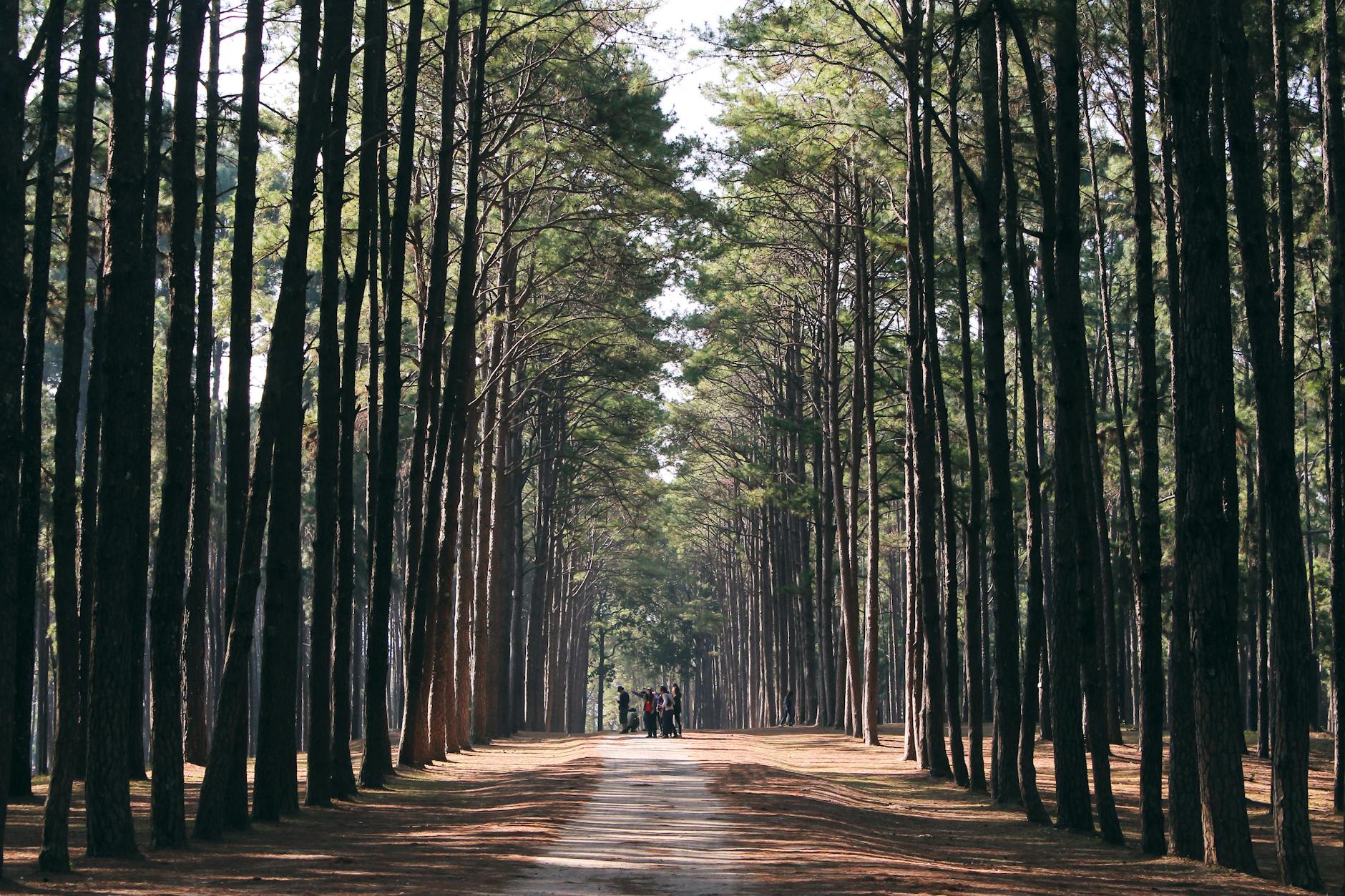How to Choose Eco-Friendly Adventures in Australia

Eco-Adventure Criteria
Assess Environmental Impact
When planning an adventure, it's crucial to think about the environmental impact of your trip. For eco-conscious travellers, assessing the ecological footprint of potential destinations is key. When considering activities like galapagos tours or patagonia tours, it's essential to choose operators committed to sustainability and conservation. Look for certifications or partnerships with environmental organizations that focus on reducing carbon emissions and promoting biodiversity. Being mindful of these aspects ensures that your adventures support ecological health.
Support Local Conservation
Supporting local conservation is another vital aspect of eco-friendly travel. Opt for tours and activities that actively contribute to conservation efforts. For instance, some central america tours offer opportunities to participate in reforestation or wildlife protection projects, providing a chance to give back to local ecosystems. By choosing such experiences, you can have a positive impact on the environment and support local communities in preserving their natural heritage.
Prioritize Biodiversity Hotspots
Choosing destinations known for their unique biodiversity is an excellent way to expand your environmental knowledge while travelling responsibly. Destinations like the Lone Pine Koala Sanctuary in Brisbane showcase the wonders of native Australian wildlife and offer educational insights into conservation efforts. Prioritizing these hotspots not only enriches your travel experience but also supports the protection of rare and endangered species. By visiting these areas, you are contributing to awareness and efforts to conserve critical habitats.
Evaluating Destinations
Choosing the right destination for eco-friendly travel involves more than just picking a scenic spot. It's about ensuring that these places align with sustainability values and offer meaningful engagement with nature. One of the most important steps is to choose protected areas. These regions, often rich with biodiversity, have established conservation measures and offer guided experiences that embody respect for natural habitats. Visiting areas like the Great Barrier Reef ensures that our adventures contribute positively to local ecosystems.
In addition to selecting protected regions, engaging with local communities can deepen the travel experience. Community-based tourism initiatives often allow travelers to understand and participate in local customs while supporting livelihoods. This means you leave a lighter footprint and contribute to the preservation of cultural heritage.
Understanding wildlife regulations is crucial when visiting these sensitive environments. Respecting rules about wildlife interactions not only protects animals but enhances your appreciation of them. Given Brisbane's proximity to places like the Lone Pine Koala Sanctuary, where wildlife welfare is a priority, it's essential to emulate responsible practices when exploring similar environments abroad.
For those considering polar expeditions, options like arctic cruises and galapagos cruise offer insights into unique ecosystems. These types of adventures typically emphasize education and conservation, making them ideal for those committed to preserving our planet's natural beauty.
Sustainable Activity Choices
Opt for Low-Impact Travel
Choosing low-impact travel methods is essential for minimising your carbon footprint. Consider travelling via public transportation or shared rides to reduce emissions. When exploring regions known for their natural beauty, such as central Queensland or the coastlines near Brisbane, walking or cycling allows you to absorb the environment without negatively impacting it. Moreover, when considering global destinations like central america travel, look for eco-friendly options such as train journeys or carbon-neutral flights.
Join Conservation Projects
Participating in conservation projects not only enriches your travel experience but also contributes significantly to local ecosystems. In iconic locations like the Great Barrier Reef or even further afield in antarctic tours, there are numerous opportunities to engage in meaningful work. From reef restoration to wildlife monitoring, these projects allow you to witness positive environmental impacts firsthand. While in Brisbane, consider visiting the Mt Coot-tha Reserve, where local volunteer initiatives often focus on habitat restoration.
Select Eco-Friendly Tours
Eco-friendly tours prioritize sustainability and provide educational insights into the areas you explore. When selecting tours, choose companies that adhere to environmental standards, offer small group sizes, and have qualified guides. This approach ensures sensitive ecosystems, like the ones near the Story Bridge in Brisbane, remain protected. Focus on tours that promote environmental awareness and respect for local wildlife, allowing you to engage deeply without compromising the region’s integrity.
Preparing for the Trip
Pack Sustainable Gear
When gearing up for your eco-friendly adventure, it's important to pack thoughtfully. Selecting items that minimize waste and have a lower environmental impact can make a significant difference. Opt for reusable essentials like water bottles, travel utensils, and eco-friendly toiletries. Choose clothing made from sustainable materials, and remember to pack light to reduce the carbon footprint of your travel.
Research Seasonal Conditions
Understanding the seasonal conditions of your destination is crucial, especially for adventures like Antarctica travel where extreme weather can impact safety and environmental conditions. Knowing what to expect allows for better preparation and reduces the risk of needing to purchase additional gear that might not be sustainable. Check forecasts and pack accordingly, ensuring your clothing and equipment meet the seasonal demands while maintaining an eco-friendly edge.
Plan Carbon Offset Strategies
Before you set off on your journey, consider how you can offset the carbon emissions associated with your travel. While visiting breathtaking places like cuba tours or immersing yourself in Antarctica's pristine landscapes, it's vital to reflect on the environmental cost. Numerous organisations offer carbon offset programs where you can invest in projects that reduce greenhouse gas emissions. By participating in these initiatives, you contribute to a positive environmental impact, aligning your actions with the values shared by many in the environmentally conscious community.
Avoiding Common Missteps in Eco-Adventure Travel
Respecting Local Guidelines for Conservation
It's essential to connect deeply with our environment when embarking on eco-adventures. Ignoring local guidelines can have detrimental effects on natural sites. When visiting destinations like Mount Coot-tha Reserve, it's crucial to adhere to all specified trail markings and respect closures put in place for regeneration. By honouring these boundaries, you contribute to the preservation of biodiversity and ensure that these sacred spaces remain pristine for generations to enjoy.
Upholding Ethical Tour Standards
Not every tour carries the same ethos, and it's important to discern which ones uphold truly ethical standards. Whether you're exploring the Lone Pine Koala Sanctuary or kayaking under the glorious Story Bridge in Brisbane, always choose tours that prioritize sustainability practices over mere profit. This could mean rejecting those that disturb local wildlife or overstretch the capacity of natural sites. By making informed choices, you ensure that your experiences don't inadvertently harm the environments you cherish.
Consulting Reliable Sources for Information
Lastly, venturing out without consulting reputable sources is a missed opportunity to engage deeply with our surroundings. Exploring websites of local conservation groups or eco-blogs can enrich your understanding and appreciation of the places you visit. They often provide updates on environmental initiatives, wildlife regulations, and even the difference between zero and no investment. Arming yourself with this information empowers you to make decisions that align with your values, letting you absorb the true essence of your surroundings without leaving a heavy footprint.


